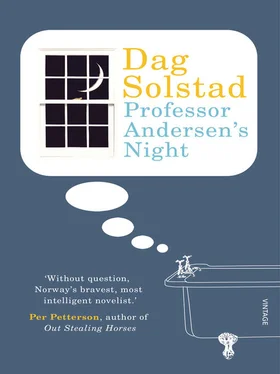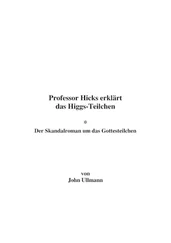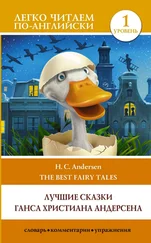Dag Solstad - Professor Andersen's Night
Здесь есть возможность читать онлайн «Dag Solstad - Professor Andersen's Night» весь текст электронной книги совершенно бесплатно (целиком полную версию без сокращений). В некоторых случаях можно слушать аудио, скачать через торрент в формате fb2 и присутствует краткое содержание. Год выпуска: 2011, Издательство: Harvill Secker, Жанр: Современная проза, на английском языке. Описание произведения, (предисловие) а так же отзывы посетителей доступны на портале библиотеки ЛибКат.
- Название:Professor Andersen's Night
- Автор:
- Издательство:Harvill Secker
- Жанр:
- Год:2011
- ISBN:нет данных
- Рейтинг книги:3 / 5. Голосов: 1
-
Избранное:Добавить в избранное
- Отзывы:
-
Ваша оценка:
- 60
- 1
- 2
- 3
- 4
- 5
Professor Andersen's Night: краткое содержание, описание и аннотация
Предлагаем к чтению аннотацию, описание, краткое содержание или предисловие (зависит от того, что написал сам автор книги «Professor Andersen's Night»). Если вы не нашли необходимую информацию о книге — напишите в комментариях, мы постараемся отыскать её.
Professor Andersen fails to report the crime. The days pass, and he becomes paralysed by indecision. Desperate for respite, the professor sets off to a local sushi bar, only to find himself face to face with the murderer.
Professor Andersen's Night
Professor Andersen's Night — читать онлайн бесплатно полную книгу (весь текст) целиком
Ниже представлен текст книги, разбитый по страницам. Система сохранения места последней прочитанной страницы, позволяет с удобством читать онлайн бесплатно книгу «Professor Andersen's Night», без необходимости каждый раз заново искать на чём Вы остановились. Поставьте закладку, и сможете в любой момент перейти на страницу, на которой закончили чтение.
Интервал:
Закладка:
They ate rakfisk. Drank beer with a chaser. Skolled and laughed, and chatted cheerfully. They all belonged to the same generation, and they were linked to each other by strong ties, even Professor Andersen, who, tonight in particular, struggled with a disturbing feeling that he had now parted from them for good. He still felt bowled over at being unable to confide in his friend Bernt, their host, when he had come to this dinner party an hour and a quarter early for the sole purpose of doing so. He now sensed that he was not just about to be, but already was tangled up in something which had consequences he couldn’t imagine, and which were such that they threatened for one thing to leave him friendless, since it was now impossible for him to deny that the strong urge he had felt to confide in a friend, frankly, baring his soul, in reality couldn’t be fulfilled when standing face to face with Bernt. This distracted Professor Andersen somewhat, and in this distracted frame of mind it would have been easy for him not to take part in this dinner group and to regard it from the position of an outsider, as if it were a remote event which didn’t concern him, with gestures and rituals performed by strangers who didn’t concern him, but that wasn’t the outcome. Whether he wanted to or not, he belonged in the company of these successful intellectuals in their fifties in the capital of Norway towards the end of the twentieth century. They were linked to each other by such strong ties that, for instance, Professor Andersen, who wasn’t a close friend of either Per Ekeberg or Trine Napstad, knew both of them from the university at Blindern in the Sixties, and that at a time when Per Ekeberg and Trine Napstad hadn’t the foggiest notion of each other’s existence, though she, Trine Napstad, easily remembered Per Ekeberg’s first wife, who had been a childhood friend of Nina Halvorsen, at the time when her name was Nina Hellberg, which was still her name when Trine Napstad came to know her. Thus one could look back to the early Sixties, and the random, but strong and active, ties created at the university, where all of them had studied (apart from Judith Berg, who was at the time unattainable, an Air Hostess), and each in some way had become a radical student. None of them, apart from Jan Brynhildsen, had ever ended up on the far left, the revolutionary Marxist-Leninists, the Maoists, in the legendary — or notorious, if you prefer — Marxist-Leninist Workers Front known as AKP (M-L); they were, in fact, slightly too old for the likes of that, and too set in their ways when it came to the fore, but they had been anti-NATO and voted against the Common Market, relatively early in the Sixties, and early in the Seventies, and Per Ekeberg had demonstrated against apartheid at Madserud during a tennis tournament between Norway and South Africa, and had been carted off by the police, and Nina and Bernt had been anti-nuclear demonstrators and worn Ban the Bomb buttons on their duffle coats. The nuclear badge, as Andersen, still an undergraduate, had called it, alluding to the swimming badge so popular in their schooldays. ‘I see you’ve earned your nuclear badge,’ he would say, but neither Nina nor Bernt had laughed, for some things were too serious to make jokes about, and thus he had been left standing there with his silly joke, feeling silly himself as well when the others didn’t laugh, for he was radical, too, in his way. However, as an undergraduate, Andersen’s radicalism was mainly expressed through his interest in and his support of people who attacked either in speech or in writing the empirical school of thought, which was then the prevailing approach within philosophy and the social sciences, not to mention his preoccupation with all kinds of avant-garde trends in art and literature.
While Bernt Halvorsen was deeply preoccupied with the armaments race and the Cold War and was keen to take action, as an undergraduate Pål Andersen sat at home in his bedsit reading strange poems, which he had great difficulty interpreting. Was this his form of political radicalism, which linked him to the same life nerve that surged through Bernt Halvorsen with such unbending seriousness? Indeed, his preoccupation with avant-garde French and Polish films, modern literature and abstract paintings was an attempt, a desperate one at times, to enter the same period to which Bernt Halvorsen already belonged, and which he could defend from the inside with such accuracy. He was zealous in his efforts to understand avant-garde art, that form of art which has really taken hold of our own day and age. He often felt that he had failed to understand it, indeed, more often than he would admit, it left him in a state of incomprehension, confusion, indifference, even after he had used all his astuteness to understand only a snippet of it. It could make him feel desperate. He felt a failure because he didn’t understand the art of his own period, and it can’t be denied that in such situations he often pretended to understand more than he actually understood, and even feigned an admiration for works of art which, in actual fact, left him unmoved. But on the other hand, what pleasure he could experience if, after a long struggle with, for instance, a modernist poem, he suddenly understood it! He had, for that matter, felt the greatest joy when he understood intuitively, directly. Why? Because then his own searching and restless and frequently maladjusted soul melded, as though it were the most natural thing in the world, with the greatest minds of his time. He had felt enlightened, and at the very highest level. It gave him a deep, tranquil satisfaction, as he had been moved by reality, and he hoped intensely that someone would pay a visit to his bedsit right then, so he could have read this poem aloud to them. That this reality had dissolved all conventional and normal reality, and depicted a quite different and often uncompromising reality, where ordinary things had ended up in unaccustomed and frightening positions, often accompanied by black humour, on this passage through a landscape of deformity and impossibility, of anxiety and pent-up screams, cynical and relentless, disparaging and dissolved, unnerved and alcoholised, fatally wounded by the belief in total happiness, none of that diminished Pål Andersen’s pleasure at being able to understand the most outstanding achievements of his own day and age, but that the young man who took all this to his breast could, simultaneously, identify with serious and morally incensed political radicalism may well strike one as rather mysterious. But that is how it was. Pål Andersen’s rare moments of happiness when he thought he understood the chaotic and iconoclastic form of an avant-garde work of art strengthened, rather than weakened, his confidence in his own impossible life, as a young man with the future ahead of him. He didn’t seek comfort, but relentlessness. He didn’t seek the structure he was brought up to see and understand, but the disintegration of that structure. He didn’t turn to art in order to receive, but to see. He couldn’t imagine using the word ‘rewarding’ about a work of art — for instance, that such and such a book has given me so much, taught me so much, etc. etc. — but thought solely that it enlightened him, made him see, cynically and without false expectations, so that he felt he was alive, something that young men often struggle to feel clearly, and which very easily makes them become maladjusted. Actually, it is not all that difficult to see that as a young man Andersen must have been a snob. If he were to become a part of his own day and age, with all his maladjustments, then it would have to be through reaching the highest level of enlightenment, through an understanding of this day and age’s most outstanding achievements within the arts. But Professor Andersen would probably in any case have asked us to bear with him, especially when we now see his desperate attempts to relate to the avant-garde movement of his period, which for him was identical to modernity; being a young man of his own day and age, as he painstakingly tried to understand a poem by, for instance, Pound or Elouard, by Celan or Prévert, and then managed it, he succeeded, perhaps even intuitively; can’t we visualise the leap in his own self-esteem when it takes place, and let us grant him that, and thereby the pride which rushes through this callow young man, who, in his deeply tranquil satisfaction, now has only one wish beyond the one which has already come his way, that someone would come and visit him, so that he might have someone to share this satisfaction with, therefore he wishes that someone would come, so that he can read this poem aloud for them here in his simple bedsit. Two youths, one of whom reads poetry to the other, two young students, one of whom reads aloud to the other from the works of their common youthful contemporaries with the most outstanding awareness of life as it is, and thereby also of life in the future. Pål Andersen wasn’t young in the sense that he felt life-giving sap threatening to burst his veins. He didn’t feel particularly strong, with unparalleled vigour, which was straining to get out, the way young people are often portrayed by older people, as a measure of youth, and which consequently has to be demonstrated through youthful conduct. He was a sallow youth, who smoked forty cigarettes a day, and drank five or six pints of beer in smoky, muggy bars three to four evenings a week, and who woke up with a hangover at least twice a week, so that it was a painful effort to drag himself up to the university at Blindern and his daily toil in reading rooms and in lecture theatres. He spent his life in stuffy surroundings, with flagging, aching limbs and endless brooding; nonetheless, it was beyond doubt that his young mind could respond, and that due to this responsiveness a promising future lay ahead of him. Now and then he was visited by his total opposite, the medical student Bernt Halvorsen, and then he read him poems, by Georg Johannesen for instance. Or by Stein Mehren, two Norwegian poets who were only a few years older than himself, and whom he admired enormously. Sitting on his unmade bed, with bedclothes that were never aired (but now and then actually washed), he read poems for Bernt.
Читать дальшеИнтервал:
Закладка:
Похожие книги на «Professor Andersen's Night»
Представляем Вашему вниманию похожие книги на «Professor Andersen's Night» списком для выбора. Мы отобрали схожую по названию и смыслу литературу в надежде предоставить читателям больше вариантов отыскать новые, интересные, ещё непрочитанные произведения.
Обсуждение, отзывы о книге «Professor Andersen's Night» и просто собственные мнения читателей. Оставьте ваши комментарии, напишите, что Вы думаете о произведении, его смысле или главных героях. Укажите что конкретно понравилось, а что нет, и почему Вы так считаете.












